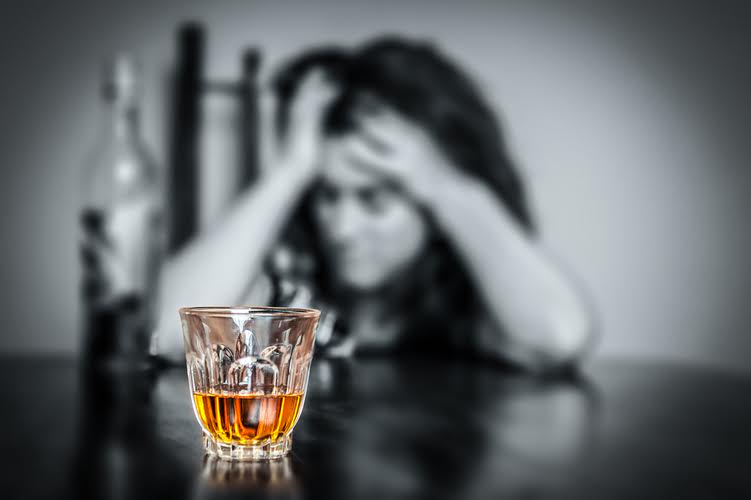Content
A trained therapist can help people find ways to cope with the increased levels of stress that they experience during withdrawal. New Horizon is able to provide such therapy, as well as detoxification services if necessary. New Horizon can help people identify and treat the underlying conditions that may be causing the dizziness, such as high blood pressure. It is important to consult with a doctor or psychiatrist to determine what is causing the dizziness. The Food and Drug Administration (FDA) has approved three medications to treat alcohol dependence.

If you only drink two to three drinks per week, you can easily quit cold turkey without experiencing major withdrawal symptoms. However, tapering off may be the way to go if you drink heavily or have more than six drinks per week. Establishing new habits and routines, and dealing with the underlying causes of your drinking habits, are essential to lasting recovery. Alcohol also changes your brain chemistry, which can result in higher levels of anxiety and depression for the first several months.
How to Know When It’s Time to Cut Back
By reducing withdrawal symptoms, you will be able to focus on recovery and getting better. Heavy drinkers who suddenly decrease their alcohol consumption or abstain completely may experience alcohol withdrawal (AW). Signs and symptoms of AW can include, among others, mild to moderate tremors, irritability, anxiety, or agitation.
What is the best way to cut out alcohol?
Set limits. Decide how many days a week you plan to drink and how many drinks you plan to have. For instance, you might decide to only drink on a Friday night or Saturday night and have one drink. Schedule alcohol-free days every week.
In addition, to being a certified Addictions Counselor, Erin is a Certified Peer Recovery Specialist (CPRS), and a Registered Peer Supervisor (RPS). When you quit cold turkey without supervision, you’re more likely to relapse and binge drink, which increases the likelihood of overdose. Take our short alcohol quiz to learn where you fall on the drinking spectrum http://www.qwas.ru/russia/pp-pss/id_83859/ and if you might benefit from quitting or cutting back on alcohol. However, certain food groups also have benefits when it comes to helping with the discomfort of withdrawal symptoms and detoxification. Some previously face-to-face support groups like SMART Recovery and Alcoholics Anonymous have moved online, which has increased accessibility.
What is alcohol withdrawal?
Many of the effects of drinking every day can be reversed through early intervention. Deciding to quit drinking and following through isn’t just about willpower. Many other factors go into play with these difficult and trying scenarios. Tolerance, dependence, social habits, setting, the biology of the individual and more must all be considered. A number of medications can help people who are moderately to severely dependent on alcohol.

But that does not mean home detox is effective, appropriate, or safe. For example, healthcare providers usually don’t take patients off antidepressants suddenly; rather, they gradually reduce the dosages. By talking with your doctor or an addiction treatment specialist, together you can determine a safe tapering schedule that suits your needs. The length of the tapering process can vary based on the needs of the person. People with a greater dependency on alcohol may need to stretch out the process to gradually reduce their alcohol intake. Tapering off alcohol is not the most beneficial option for everyone.
Management of Alcohol Withdrawal
From here, you can plan a schedule for gradually reducing how much you drink per day. Ideally, this schedule will be determined with the assistance of a doctor or addiction treatment professional. If you are a frequent drinker determined http://abc-jewels.ru/en/view_encyclopedia.php?id=14 to reduce or stop your alcohol intake, the safest way to do this at home is through a gradual tapering process. Attempting to quit all at once can lead to severe symptoms that can be difficult to manage safely outside of a detox setting.
Melissa’s personal experiences with addiction and mental health struggles instilled within her a profound passion for supporting others on their recovery journey. Her unwavering commitment to peer support, coupled with her own lived experience, fuels her drive to make a meaningful impact in the lives of those facing similar challenges. Nonetheless, quitting cold turkey might be the only way for people who don’t have an alcohol use disorder (AUD). In this case, having a strong support system, attending AA meetings, and talking with an addiction counselor is key to a successful detox process.
Unlike a home environment, medical detox services have the professional support and resources necessary to treat severe withdrawal symptoms. This medical supervision allows for some patients to quit drinking cold-turkey without compromising safety. In addition to uncomfortable side effects, alcohol withdrawal syndrome can trigger life-threatening health complications. Whether you’ve been drinking for weeks, months, or years, it’s possible to experience alcohol withdrawal syndrome. Professional care from a specialized alcohol rehab facility is highly recommended for those attempting to quit drinking as withdrawal can be extremely dangerous. Many patients who experience mild withdrawal symptoms do not seek treatment at all.
Is 3 days without alcohol enough?
Even if you only have one or two drinks a day, your liver can't cope and can't repair itself, but you don't have to become a 'tea-totaller' to fix it. Your liver needs at least 48 hours without alcohol to repair itself. Cutting back your daily intake won't help your liver.
This is called alcohol withdrawal and symptoms can go from mild to serious. If you only drink occasionally, you may not have these symptoms, but if you have gone through alcohol withdrawal once, you are more likely to go through it again the next time you quit drinking. If you’ve become dependent on alcohol, cutting it out of your life may produce withdrawal symptoms, such as a rapid heartbeat, high blood pressure, sweating and shaking. Psychological symptoms can include irritability, anxiety and restlessness.
Support groups, from Alcoholics Anonymous to SMART Recovery, are one free way to find a community of people on the same journey. There are also a number of anti-craving medications to help you avoid drinking again, or even help with your tapering process. Finally, finding a therapist or a recovery coach can help you develop new coping mechanisms and move forward in your life. Creating a tapering schedule you can stick with is a crucial part of weaning yourself off alcohol.
